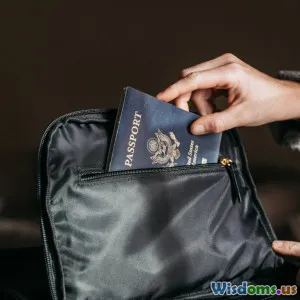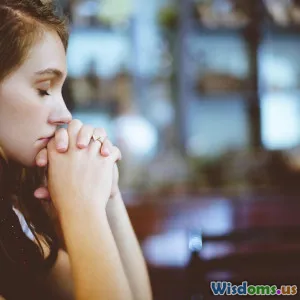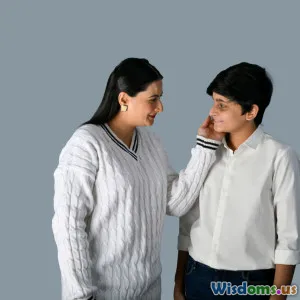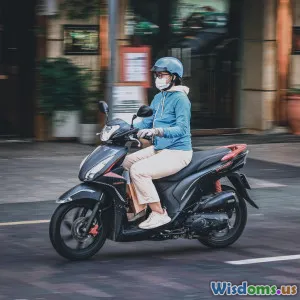
Minimalist Lifestyle: Travel Edition
7 min read Discover how embracing a minimalist lifestyle can transform your travel experiences with less stress and more freedom. (0 Reviews)
Minimalist Lifestyle: Travel Edition
Travel has often been synonymous with excess—lugging heavy suitcases, overbooking itineraries, and chasing every sightseeing highlight at a frantic pace. However, the "Minimalist Lifestyle: Travel Edition" invites us to rethink these conventions, welcoming a simpler, more intentional way to explore the world.
Introduction: Why Minimalism in Travel?
Imagine a journey where every item you carry serves a purpose, where your mind is free from clutter, and where you savor experiences rather than scramble to capture everything. This is the promise of travel minimalism. Beyond just packing light, it’s about streamlining your travel mindset and habits for more meaningful adventures.
Minimalist travel encourages reducing physical and mental baggage, leading to less stress, deeper connections, and a heightened sense of presence.
As Pico Iyer once said, “Travel is about resistance to the tangents of diversification. It’s about going deeper, not wider.”
The Core Principles of Minimalist Travel
1. Packing Light and Smart
One of the most practical aspects of minimalist travel is the art of packing. Studies show that the average traveler overpacks by up to 30% (Travel + Leisure, 2022). By focusing on essentials, versatile clothing, and multifunctional tools, you can reduce baggage size drastically.
Example: Consider packing capsule wardrobes that mix and match—for instance, a merino wool shirt that regulates temperature and resists odors reduces the need for multiple tops.
Benefits include avoiding checked luggage fees, increased mobility, and less fatigue.
2. Prioritizing Quality Over Quantity
Minimalism isn’t sacrifice; it’s curating quality. Selecting durable items such as a high-quality backpack or reliable travel gadgets means fewer replacements and less waste.
3. Streamlining Itinerary and Experiences
Instead of chasing everything in a destination, focus on fewer, impactful experiences. According to a survey by National Geographic travelers, 65% value immersion and cultural connection over quantity of sights.
This focus avoids travel burnout, ensures deeper memories, and often, more authentic interactions with locals.
How Minimalist Travel Enhances Your Journeys
Boosted Freedom and Flexibility
Unencumbered by excessive luggage or rigid schedules, minimalist travelers can pivot plans spontaneously. For example, solo traveler Laura Spencer recounts swapping a booked day tour to hike with locals and experience private caves off the tourist trail simply because she felt unburdened to change plans.
Reduced Environmental Footprint
Travel responsibly by bringing fewer disposable items, limiting fast-fashion purchases abroad, and choosing sustainable accommodations. Minimalist travel aligns closely with eco-conscious values, contributing toward less waste and carbon emissions.
Financial Savings
Less baggage means avoiding airline fees; less rushed planning reduces expensive last-minute bookings. For instance, digital nomads report allocating savings from streamlined travel gear to enriching local experiences such as food tours or craft workshops.
Practical Minimalist Travel Tips
Pack with Purpose
- Use packing cubes to organize and compress items.
- Select neutral colors for mix-and-match outfits.
- Invest in compact toiletry bottles and multipurpose gadgets.
Digitize Wherever Possible
- Opt for e-tickets, digital maps, and credit cards over physical documents and cash.
- Use apps to plan and journal trips, reducing the need for physical notebooks and guides.
Plan Mindfully
- Choose a few top attractions and prioritize downtime.
- Schedule buffer times to enjoy unplanned moments.
- Avoid multi-destination rush; spend longer in fewer places.
Embrace Local Minimalism
- Stay in minimalist-style accommodations that focus on essentials and sustainability.
- Support local artisans rather than buying mass souvenirs.
Real-World Inspirations
The Minimalists, Joshua Fields Millburn & Ryan Nicodemus, popularized minimalist travel through their blog and podcast, demonstrating how simplified travel fosters joy and freedom.
Meanwhile, famed travel writer Rolf Potts embraces minimalist ethos, often traveling with a single carry-on backpack, emphasizing experiences over possessions.
Overcoming Common Challenges
Fear of Missing Out (FOMO)
Minimalism asks you to trade quantity for quality, which can trigger FOMO. Combat this by defining your travel purpose. Are you seeking relaxation, adventure, culture?
Adjusting Expectations
Not everyone is accustomed to minimalist conveniences. Start gradually—reduce excess gear and overbooked plans step by step.
Conclusion: Embrace Minimalist Travel for Transformative Journeys
Minimalist travel is a powerful gateway to freedom—not just from physical baggage, but mental clutter and stress. It invites us to slow down, prioritize meaning over mass, and connect more deeply with places and people.
By packing thoughtfully, planning mindfully, and embracing simplicity, each journey can become a profound exploration not just of the world, but of ourselves.
Takeaway: Minimalist travel isn’t about traveling less—it’s about traveling better. Unlock the virtues of simplicity and let your adventures transcend the visible checklist, nurturing mindfulness and richer stories.
Your next journey awaits—try traveling minimally and discover the profound impact of less being truly more.
References:
- Travel + Leisure (2022), "Why Travelers Overpack and How to Stop"
- National Geographic Traveler Study (2021)
- Millburn, J.F. & Nicodemus, R., The Minimalists Blog
- Potts, R., Vagabonding: An Uncommon Guide to the Art of Long-Term World Travel
Rate the Post
User Reviews
Popular Posts





















